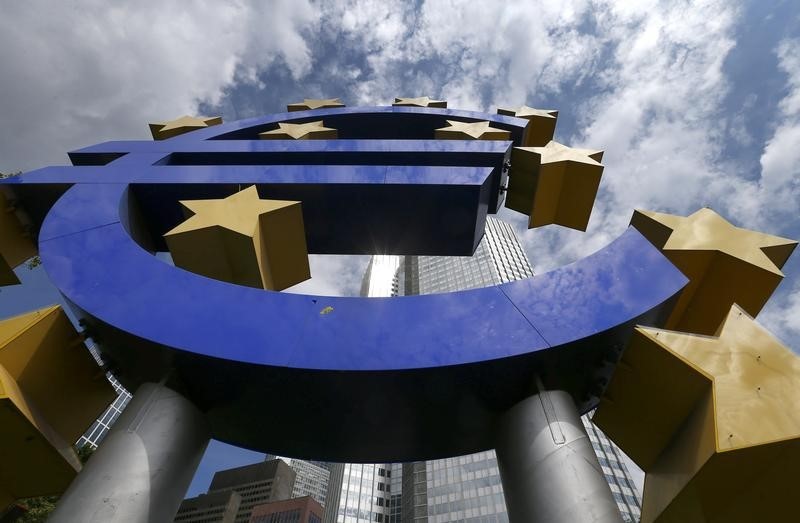By Giuseppe Fonte and Steve Scherer
ROME (Reuters) - Italy's central bank chief called on Monday for the European Central Bank to begin large-scale bond purchases "rather quickly" if price pressures remain weak, adding that oil price falls would indeed push down inflation.
Ignazio Visco, who sits on the ECB's Governing Council, made the comments as the policymakers consider printing money to buy sovereign debt -- so-called quantitative easing -- next year to prevent the euro zone slipping into a deflationary spiral.
Visco, who belongs to the dovish camp on the 24-member Council, said many ECB policymakers supported acting to contain the risk of deflation. The bank has said it will decide early next year whether to take fresh action.
"If new inflation figures confirm the persistence or even the worsening of the risks to price stability in the euro area, then it would be necessary to start rather quickly further interventions to buy bonds on a large scale," Visco said in testimony in Italy's parliament.
Such an operation would aim to bring the ECB's balance sheet to "desired levels", he said. The ECB has a self-imposed target to grow its balance sheet by around 1 trillion euros (796.6 billion pounds) to levels seen in early 2012.
The ECB is already trying to achieve that target by buying private sector assets with a view to pumping money into the economy to save it from deflation. However, these efforts have been modest, raising pressure on the ECB to buy sovereign bonds.
Updated figures from the ECB on Monday showed it bought 187 million euros worth of asset-backed securities last week. It purchased 3.829 billion euros worth of covered bonds.
Buying sovereign bonds would allow the ECB to have a bigger impact in a large, liquid market. However, hawks on the Council led by Bundesbank chief Jens Weidmann oppose quantitative easing.
Weidmann, who has laid bare the entrenched German opposition to buying government bonds to do this, told Italy's La Repubblica newspaper in a weekend interview: "There is no binding need to respond" to low inflation.
The Bundesbank nonetheless said on Monday it would have to cut its 2015 inflation forecast if recent declines in oil prices are sustained.

Visco said the effect of oil price falls on inflation "will be worse in coming months", adding: "At the ECB, many of us support moving to contain these risks."
(Writing by Paul Carrel; Editing by Hugh Lawson)